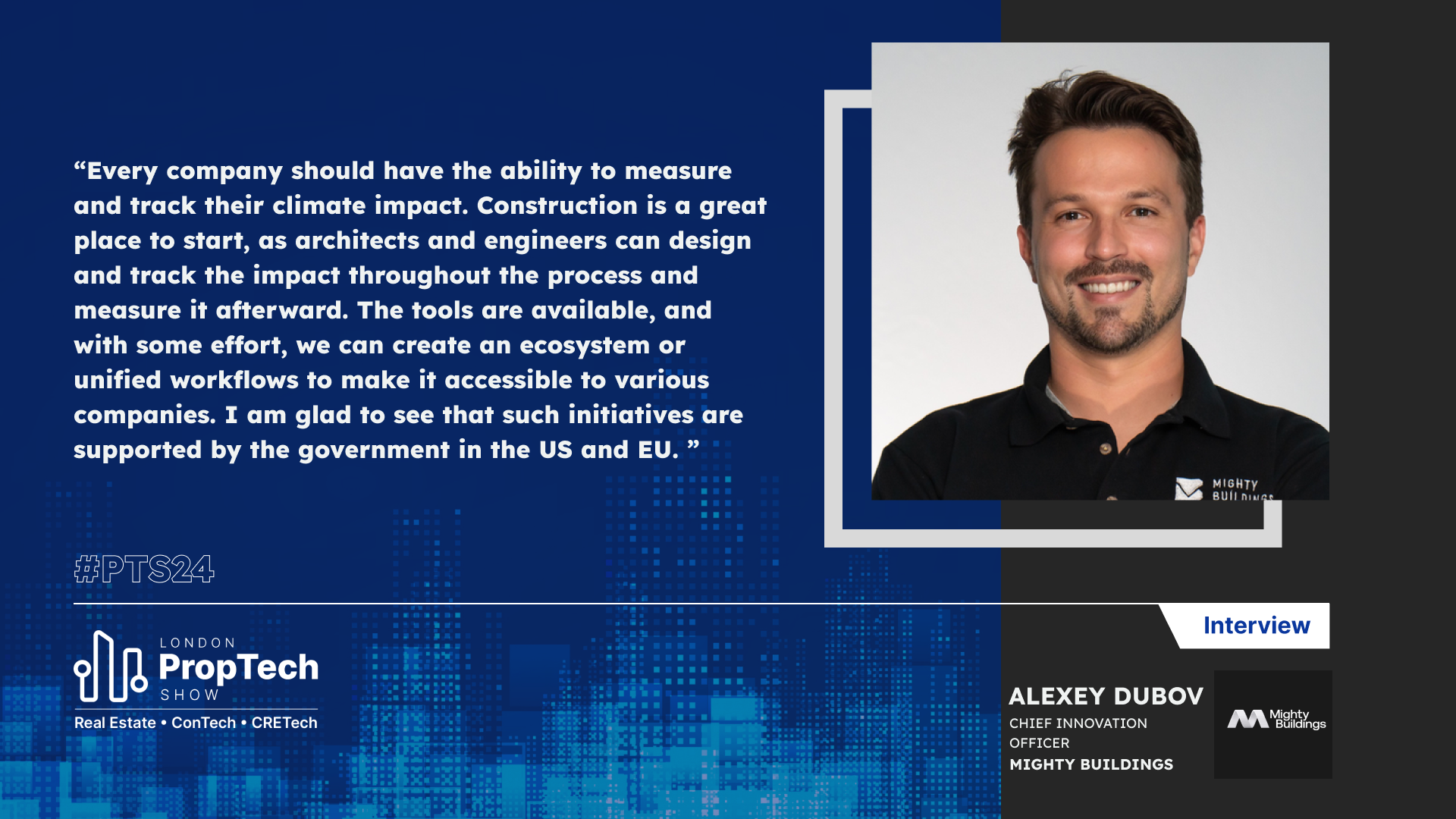Alexey Dubov is a serial entrepreneur with a strong focus on Construction Tech, Real Estate Tech, and Robotics. He is the Chief Innovation Officer of Mighty Buildings, a leading 3D printing company that is revolutionising the way buildings are built.
In this Q&A session, Alexey shares his insights on the future of the construction industry with the integration of AI and innovative technologies. He also discusses the sustainability of polymers in 3D printing, the potential impact of robots on construction sites, and how events like the London PropTech Show contribute to the improvement and advancement of the proptech sector.
#PTS: As a serial entrepreneur with a strong focus on Construction Tech, Real Estate Tech, and Robotics. How do you envision the future of these industries with the integration of AI and Innovative technologies?
Mr Alexey: Well, let's start with the innovative technologies. There are many changes in ConTech and RealTech that we are going to witness. Throughout the construction life cycle, the vast impact will be driven by the materials we use and how we design buildings; they depend on each other. AI is accelerating the change. Those organisations that build out data sets for AI have a huge advantage right now, as they can complete work faster or provide more options to owners and customers. We will see more and more robotics for on-site construction, but the current theme is about getting data from the site to manage the operations, which is called Tele Construction. If we go stage by stage, we can see companies accelerating Design, automating Pre-Construction, mitigating risk in Procurement, automating or reducing the labour need for Construction, and being smart about Building Management. Novel engineered materials and construction methods are evolving as I see more and more building systems being released and piloted by different players around the world.
#PTS: The sustainability of polymers in 3D printing is a critical topic. Can you provide more details about the strategies that could be employed to enhance polymer sustainability in 3D printing, and how you perceive the emergence of ecosystems for recyclable printed materials?
Mr Alexey: I can provide an example of using recycled fillers in our polymer composition. Polymers can be more robust and energy efficient, resulting in a better score with the LCA on the building level than traditional materials. There are more ways to improve the sustainability of polymers, such as different curing methods, and the production process is less wasteful, not requiring water or energy to heat and trigger the polymerization reaction. Additionally, the end-of-life recycling or reuse of building materials should be considered on the building system level, not on a material level. If you visit any demolition site, you can see how they separate one material from another - the outcome is quite disheartening.
#PTS: What is the potential impact of robots on construction sites and various processes? What recommendations would you give to contractors to adopt automated construction methods seamlessly?
Mr Alexey: I would say just start doing experiments with different systems, but before doing so, try to review the workflow and see if there are low-hanging fruits that can help to avoid rework and mistakes by just digitising the processes. The massive lack of on-site labour is forcing big contractors to do more and more experiments with autonomous or remotely controlled systems. These systems will become more affordable and integrated pretty soon.
#PTS: You have a deep passion for both Construction Tech and Climate Tech. How do you see these two areas intersecting to drive sustainable innovation in the built environment?
Mr Alexey: Sustainability is becoming an essential part of modern companies. Every company should have the ability to measure and track their climate impact. Construction is a great place to start, as architects and engineers can design and track the impact throughout the process and measure it afterward. The tools are available, and with some effort, we can create an ecosystem or unified workflows to make it accessible to various companies. I am glad to see that such initiatives are supported by the government in the US and EU.
#PTS: How do events like the London PropTech Show contribute to the improvement and advancement of the Protech sector?
Mr Alexey: This forum provides an excellent platform for innovators and practitioners to collaborate and exchange ideas, as well as a valuable learning experience for operators and builders.

